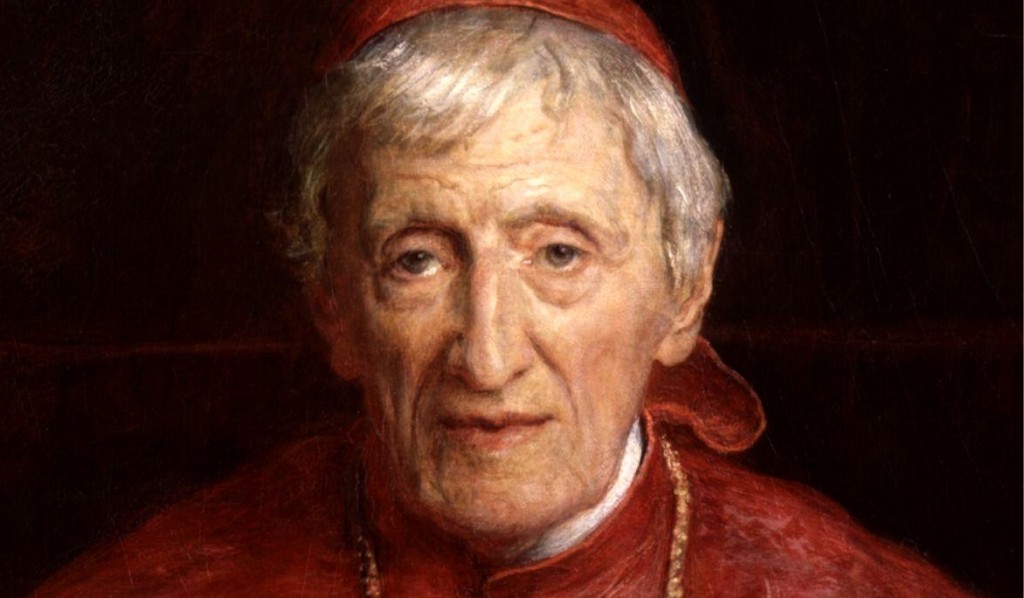
You really do wonder sometimes:
I wonder how the non-clerical Christian world would have reacted if they had a daily report on the proceedings at Nicaea.
— Arthur Urbano (@arturoviaggia) October 18, 2015
It would probably look something like this (pardon the anachronisms):
In a perverse Jesuit reversal of Benedict XVI’s Ordinarate Francis has decided to reverse-Newman and become an Anglican! Ross Douthat gets it.
Striking how many Catholics seem persuaded that the Holy Spirit is an Anglican.
— Ross Douthat (@DouthatNYT) October 18, 2015
Let’s totally forget that the model of collegiality that Francis is proposing is the reigning ecclesial model in the most traditional Christian community, that is, Orthodoxy (even if it has its own problems in Eastern practice). The Anglicans didn’t invent it. By the way, the Orthodox tradition is also quite liberal when it comes to permitting divorce (up to two), yet it somehow still inexplicably maintains the image of a conservative bulwark against Western decadence. [By the way, Aloys Grillmeier’s authoritative Christ in Christian Tradition: From the Apostolic Age to Chalcedon has an extensive account of the mess Nicea was].
If this isn’t confusing enough, then there’s Damian Thompson on papal primacy:
Pope Francis yesterday gave an address to the profoundly divided Synod on the Family in which he confirmed his plans to decentralise the Catholic Church – giving local bishops’ conferences more freedom to work out their own solutions to the problems of divorce and homosexuality.
This is the nightmare of conservative Catholic cardinals, including – unsurprisingly – those in the Vatican. They thought they had a sufficient majority in the synod to stop the lifting of the ban on divorced and remarried Catholics receiving communion, or any softening on the Church’s attitude to gay couples.
But in yesterday’s keynote speech, delivered as the synod enters its last week, Francis told them that the decentralisation will be imposed from above.
But wait, does he want more papal primacy or less? The answer is that they are not mutually exclusive, which is why the pope is doing what he is doing. Chris Johnson’s excellent piece on what the Synod really is about agrees with this implicitly and takes down Thompson’s conspiracy talk in the process:
Talks about homosexuality are a smoke screen used by those that want to create disunity in the Church. Popes and Bishops have long since stated the homosexuals should be loved and treated with dignity. The Church does not recognize their situations as a marriage because of the Christian understanding of matrimony as being between opposite sexes. But it has been stressed that the individuals themselves should be loved.
The fight in this Synod is about whether or not you believe in the collegiality of bishops or in a more centralized leadership. To be fair many of the Cardinals and Bishops present in the Synod have probably never been inculturated in what collegiality may actual look like. They are used to having Synod’s in which the conversation is directed at a predetermined position and in truth there is nothing wrong with this, except that it demonstrates a more top down approach.
Both John Paul II and Pope Benedict XVI (some of the most misunderstood men in history) appear to have liked Synods in which the Cardinals arrived to and had conversation with what often was seen as a predetermined outcome. In all honesty that course may have been necessary as a post-conciliar Church attempted to sort itself out. Many of these synods also had doctrine such as the Eucharist at their heart so there was not room for a lot of debate about what that means.
In this truly Extraordinary Synod Pope Francis appears to prefer to have the Cardinals hash things out themselves. In the short-term this makes things incredibly messy but long-term it means that the Cardinals have all had their say and nothing gets railroaded through. There will be those that are disappointed with the outcome but that’s what consensus is often about, giving up some of your comfort area for the group’s larger good.
If things don’t get railroaded through, then the unity of the Church is reinforced, because everyone has had their say. Therefore, a hard-won unity of the bishops can only reinforce papal legitimacy. By the way, Johnson’s piece, almost prophetically, was written days before the pope announced his plan to foster collegiality. This is a source who really understands what’s going on.
All in all, we should follow Alexander Lucie-Smith over at The Catholic Herald who enlisted the Mother of God against papal primacy detractors:
Our Lady, exterminator of heresies, pray for us. pic.twitter.com/Yens3uU3N0
— Xander Lucie-Smith (@ALucieSmith) October 18, 2015
Fret not, the pope remains Catholic.
Lady Madonna says . . .
You shouldn’t miss my controversial breaking story on how the Catholic opposition to reductive liberal and conservative political labels is sadly crumbling away as a result of the Douthat Wars.












